In this eye-opening exposé, I delve into the myriad reasons why visiting US national parks might just be the worst idea you’ve ever had. From the overwhelming beauty of their landscapes to the sheer terror of encountering wildlife in their natural habitats, I uncover the hidden pitfalls that could turn your idyllic nature getaway into a cautionary tale. 😆
Writing this unconventional guide, I went beyond the glossy travel brochures and Instagram-perfect snapshots to reveal the dark side of America’s most cherished natural wonders. I consulted with weary travelers, disgruntled campers, and humorists to compile a list of complaints that might make any potential visitor think twice before venturing into the great outdoors. 🤣
Before you pack your hiking boots and hop into your RV, prepare to confront the harsh realities that could transform your dream trip into a nightmare. From the deceptively peaceful tranquility that could ruin your tolerance for city noise to the perilous beauty of night skies that might make you question your life choices, brace yourself for an introduction to the perils that await in US national parks. 😉
Subscribe to daily national parks planning tips, travel inspiration and trip ideas and I’ll send you a free PDF of this Guide to:
“10 Reasons Why You Should NEVER Visit US National Park”
Table of Contents
Thinking of visiting the national parks? Here are 10 reasons why you should NOT go!
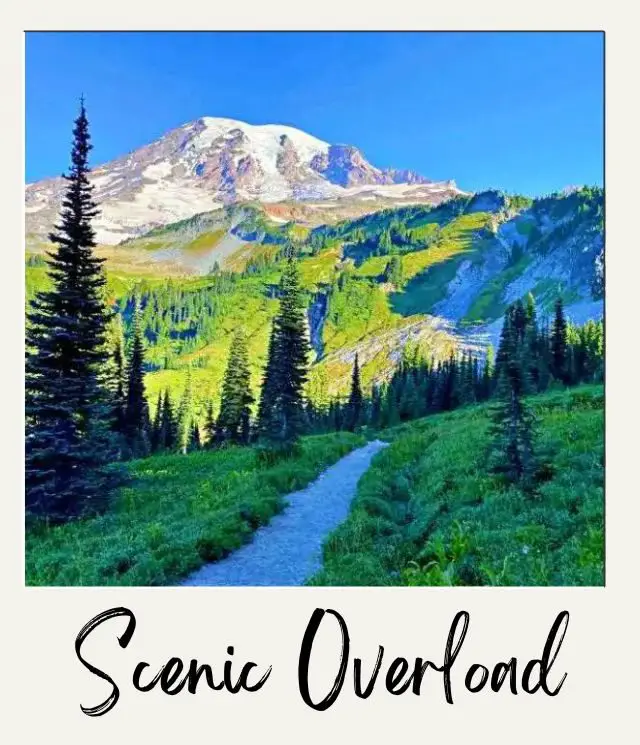
1. Scenic Overload
Constantly being surrounded by jaw-dropping scenery might desensitize you to beauty. What will you do when you get home and everything seems dull?
Venturing into US national parks might thrust you into a relentless onslaught of breathtaking scenery, leaving you hopelessly desensitized to beauty. Imagine being surrounded by towering mountains, cascading waterfalls, and pristine lakes every single day. The sheer majesty of places like Yosemite and Glacier National Park could make your eyes glaze over from sheer visual overload.
What happens when you return home to your regular, non-epic backyard? Your once-charming garden gnome and modest flower beds will seem like a pale, uninspiring imitation of nature’s grandeur. The vibrant sunsets over the Grand Canyon or the ethereal mist of the Great Smoky Mountains might haunt your dreams, rendering your local park’s sunset a mere shadow of what you’ve witnessed.
And let’s not forget the inevitable comparisons. “Oh, this little hill? It’s nothing compared to the Rockies.” Your friends and family might grow weary of your newfound disdain for anything less than jaw-dropping. So, if you value your ability to appreciate everyday beauty, perhaps it’s best to avoid the scenic sensory overload of US national parks altogether.
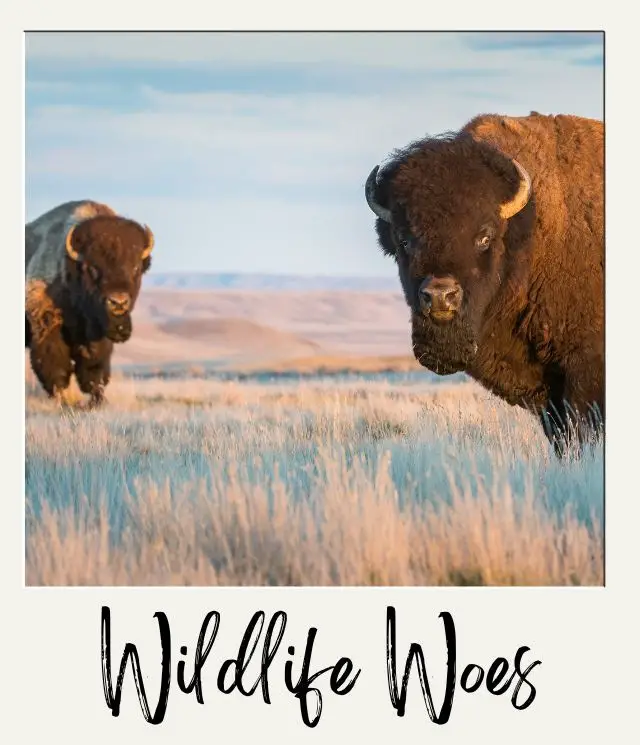
2. Wildlife Woes
Encountering majestic creatures like bison, bears, and bald eagles could make your pet goldfish seem a tad less impressive.
Stepping into US national parks means you’re bound to encounter the kind of majestic wildlife that could make your pet goldfish seem, well, a tad less impressive. Picture this: you’re hiking through Yellowstone and suddenly, a herd of bison ambles by, their sheer size and presence making your heart race. Or maybe you’re in Denali, and a grizzly bear saunters across your path, reminding you just how small and insignificant you are in the grand scheme of nature.
And then there are the bald eagles, soaring effortlessly above, their keen eyes scanning the landscape for prey. How will you ever look at your pet parakeet the same way again? The awe-inspiring sight of these creatures in their natural habitats will undoubtedly ruin your ability to be impressed by your goldfish’s occasional bubble-blowing or your cat’s half-hearted pounce.
Returning home, you’ll find yourself wistfully reminiscing about the time you saw a moose up close, while your friends roll their eyes at yet another wildlife story. So, if you want to keep your appreciation for your humble house pets intact, it’s probably best to steer clear of the wildlife wonders that await in America’s national parks.
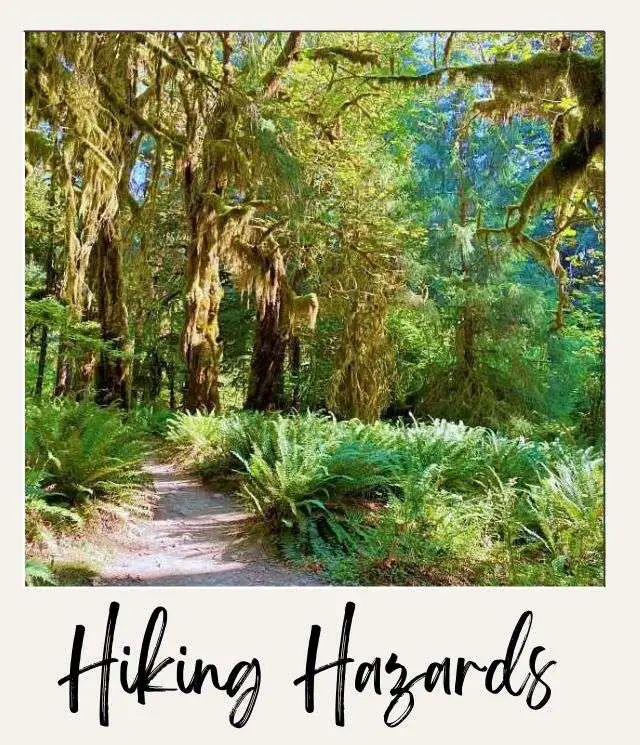
3. Hiking Hazards
With endless trails offering breathtaking views, you might accidentally become fitter and healthier. Who needs that kind of pressure?
Beware the perilous paths of US national parks, where endless trails offering breathtaking views could lead you down a dangerous road to fitness. Imagine setting out on a hike in the Grand Tetons or the Smoky Mountains, only to find yourself surrounded by awe-inspiring views and invigorating fresh air. The next thing you know, you’re hiking more miles than you ever thought possible, and—heaven forbid—actually enjoying it.
Before long, your legs will become stronger, your stamina will improve, and you might even find yourself craving more outdoor adventures. Who needs that kind of pressure? You’ll return home to your regular life, only to find that your couch-potato habits and binge-watching marathons have lost their appeal. Your friends might start noticing your newfound energy and healthier glow, asking annoying questions like, “What’s your secret?” or “Have you been working out?”
And let’s not forget the gear. Once you’ve experienced the thrill of hiking in a national park, you might feel compelled to invest in proper hiking boots, moisture-wicking clothes, and a fancy backpack. Your wallet won’t thank you, and neither will your old, comfy sneakers.
So, if you want to avoid the slippery slope to unintended fitness and the pressure to maintain it, steer clear of those tempting trails in America’s national parks. Your lazy Sundays and potato-chip diet will thank you.
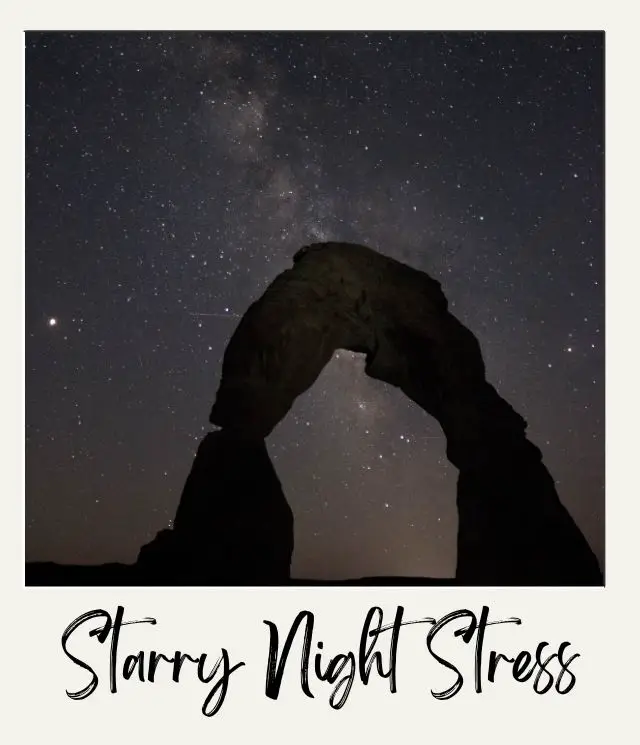
4. Starry Night Stress
The clear, unpolluted night skies full of stars might make you question your life choices in the city.
Venturing into US national parks means exposing yourself to the overwhelming beauty of clear, unpolluted night skies—an experience that could leave you questioning all your life choices. Imagine standing under the vast canopy of stars in Bryce Canyon or Arches National Parks, where the Milky Way stretches across the sky in a dazzling display of cosmic wonder. It’s enough to make you forget the comforting glow of city lights and the hum of traffic.
As you gaze up, you might start pondering why you ever chose to live in a place where the night sky is perpetually hidden behind a veil of smog and artificial brightness. The sheer number of stars, the clarity of constellations, and the occasional meteor streaking across the sky could trigger an existential crisis. How will you ever go back to your urban apartment, where the only celestial bodies you see are the occasional airplane lights?
Your friends will tire of your wistful tales of stargazing, and you might find yourself yearning for those quiet, contemplative moments under the night sky. So, if you want to avoid the stress of re-evaluating your urban lifestyle and the inevitable envy of your star-deprived friends, it’s probably best to skip those mesmerizing, star-filled nights in America’s national parks. Your city-bound self will thank you.
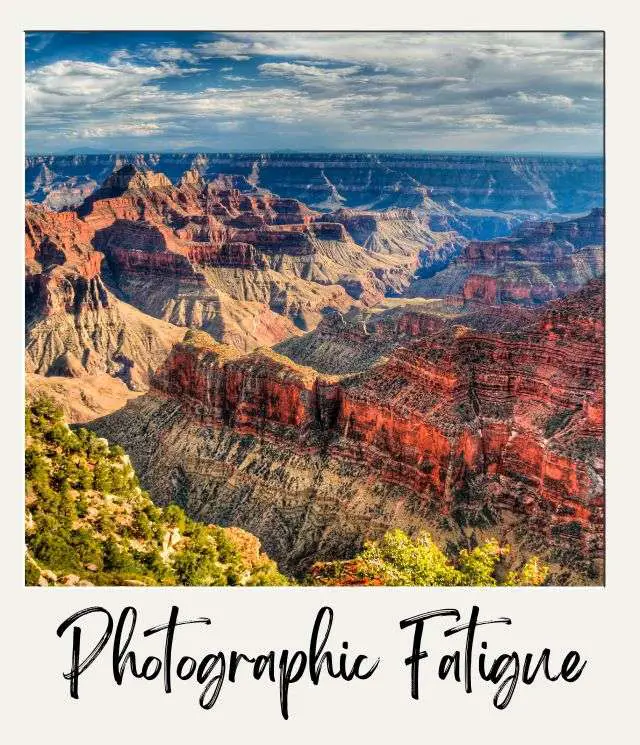
5. Photographic Fatigue
You’ll take so many stunning photos that you’ll exhaust your camera’s memory and your friends’ patience with endless vacation slideshows.
Visiting US national parks is a surefire way to fall victim to photographic fatigue. With every turn revealing a new, stunning vista, you’ll find yourself snapping photo after photo, desperately trying to capture the sheer beauty of places like Zion or the Grand Canyon. Before you know it, your camera’s memory will be bursting at the seams with images of majestic landscapes, vibrant sunsets, and wildlife encounters.
Back home, you’ll face the daunting task of sifting through thousands of pictures, each more breathtaking than the last. And let’s be honest, your friends and family might not share your enthusiasm for an epic slideshow marathon. “Oh, look, another mountain. And another. Wait, is that the same bison from a different angle?” Their patience will wear thin as you enthusiastically recount every detail of your trip.
Soon, you’ll be known as the person who traps unsuspecting guests with endless vacation photos. Your social invitations might dwindle as people fear being subjected to yet another round of “National Park Highlights.” So, if you want to avoid exhausting your camera’s memory and your friends’ patience, it might be best to steer clear of the photographic temptations in America’s national parks.
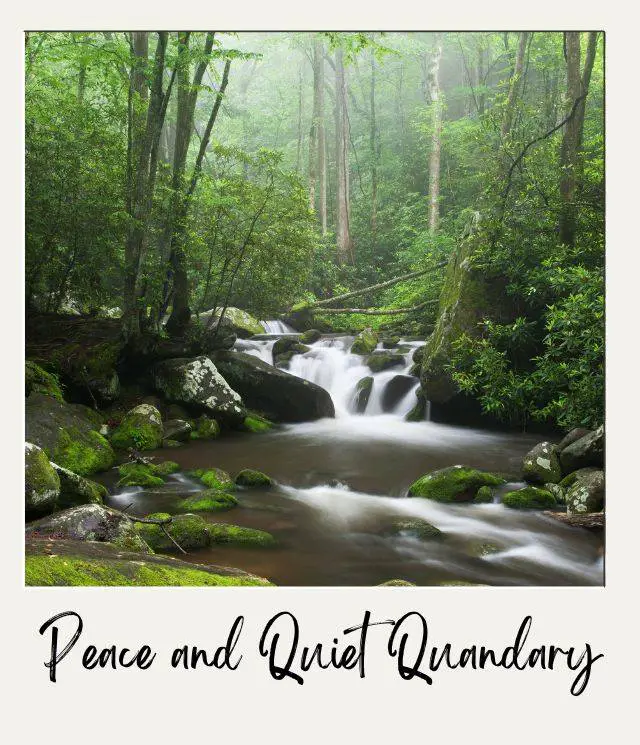
6. Peace and Quiet Quandary
The tranquility and peace in parks like Acadia or the Great Smoky Mountains could ruin your tolerance for city noise and chaos.
Be wary of the tranquility that awaits in US national parks, where the serene peace in places like the Channel Islands or the Great Smoky Mountains could completely ruin your tolerance for city noise and chaos. Imagine hiking through lush forests, the only sounds being the rustling of leaves, birdsong, and the gentle babbling of a brook. It’s a peaceful paradise that might make you question why you ever tolerated blaring car horns and endless construction noise.
After spending time in such serene environments, returning to the cacophony of city life will feel like an assault on your senses. The constant hum of traffic, the wail of sirens, and the chatter of crowded streets will seem even more grating. Your newfound appreciation for silence and solitude might lead you to shun urban activities and seek out quieter, more peaceful pastimes.
Friends might find your new aversion to city life puzzling as you reminisce about the soothing sounds of nature. Your tolerance for noise pollution will plummet, making everyday city life feel unbearable. So, if you want to maintain your ability to endure the hustle and bustle of urban living, it’s best to avoid the tranquility of America’s national parks.
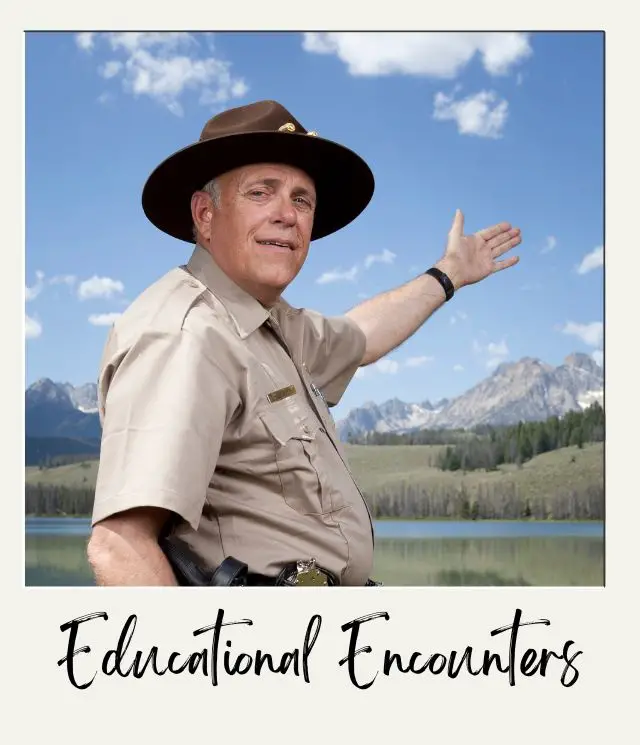
7. Educational Encounters
You might accidentally learn something about geology, biology, or history. Who goes on vacation to learn?
Venturing into US national parks is a dangerous game if you’re trying to avoid learning something new. Imagine innocently hiking through Olympic, Mesa Verde or Yellowstone, only to find yourself bombarded with fascinating facts about geology, biology, and history. Who goes on vacation to learn, right?
You might start off admiring the stunning rock formations, only to discover they’re ancient remnants of volcanic activity or glacial erosion. Before you know it, you’re spouting off terms like “igneous” and “sedimentary” to anyone who will listen. And let’s not forget the wildlife. Spotting a rare bird or a unique plant species might lead you down a rabbit hole of research, turning you into an amateur biologist overnight.
Then there’s the rich history embedded in these parks. From the stories of Native American tribes to the tales of early explorers, you’ll find yourself soaking up knowledge at every turn. Your brain will be brimming with trivia, and you’ll become that person who shares random facts at dinner parties.
So, if you want to keep your vacations blissfully devoid of educational encounters, steer clear of America’s national parks. That way, you’ll be able to enjoy a purely leisurely getaway.
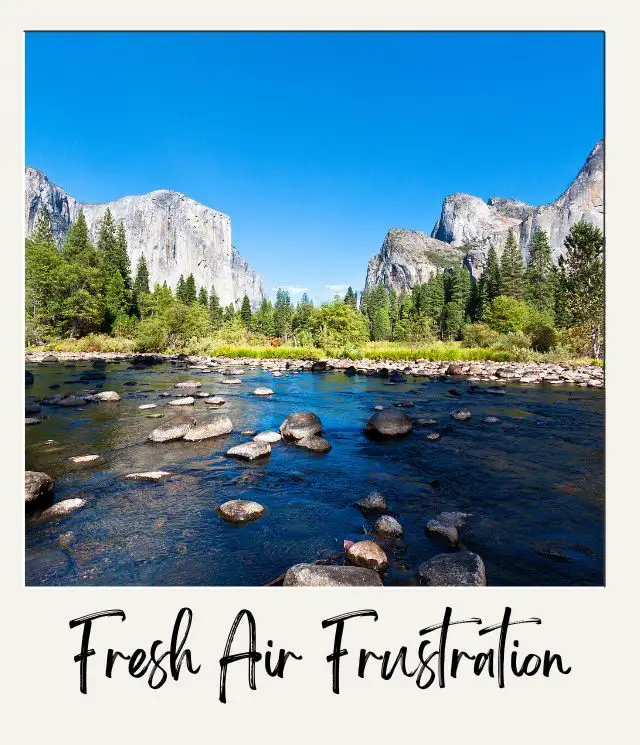
8. Fresh Air Frustration
Breathing the clean, crisp air might make you realize how smoggy your hometown really is. Ignorance was bliss.
Beware of the fresh air in US national parks. Breathing in the clean, crisp air of places like Glacier or Shenandoah might make you painfully aware of just how smoggy your hometown really is. Ignorance was bliss, after all.
Picture yourself standing on a mountain ridge, taking a deep breath of air so pure it feels like a detox for your lungs. The refreshing sensation might make you wonder what you’ve been inhaling back home. Suddenly, the thought of returning to the city’s pollution-laden atmosphere becomes a daunting prospect. Your daily commute through traffic fumes and industrial haze will seem even more unbearable.
Friends might tire of your newfound obsession with air quality as you regale them with tales of the pristine park environments. You might even find yourself considering drastic life changes, like moving to the countryside or investing in an air purifier. Your blissful ignorance about urban air conditions will be shattered, leaving you longing for those oxygen-rich park experiences.
So, if you want to avoid the frustration of realizing just how polluted your hometown air is, it’s best to stay away from the rejuvenating freshness of America’s national parks.
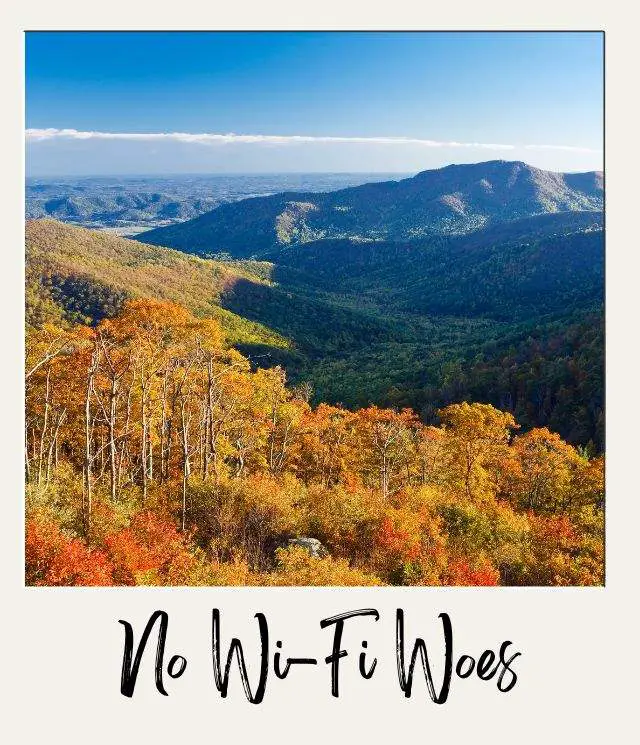
9. Wi-Fi Woes
The lack of cell service and Wi-Fi in remote areas could force you to actually talk to your travel companions.
If you’re considering a trip to US national parks, brace yourself for the horror of no Wi-Fi. In remote areas like Death Valley or Sequoia, the lack of cell service and internet connectivity could force you into the unthinkable: actually talking to your travel companions.
Imagine the scene: you’re surrounded by breathtaking landscapes, but without a signal, you can’t post that perfect selfie or check your social media feed. Instead, you’re left with nothing but the company of your fellow travelers. Conversations will have to fill the void where memes and notifications once thrived. You might even learn something new about your friends and family—like their favorite hiking trail or their thoughts on the best campfire recipes.
Without the distraction of screens, you’ll engage in meaningful dialogues, play old-fashioned games, and possibly even rediscover the art of storytelling. But beware, this could lead to stronger bonds and unforgettable memories, which might make your usual digital interactions seem shallow by comparison.
So, if you want to avoid the awkwardness of real conversations and the terror of missing out on your online life, it’s best to steer clear of the Wi-Fi-free zones in America’s national parks.
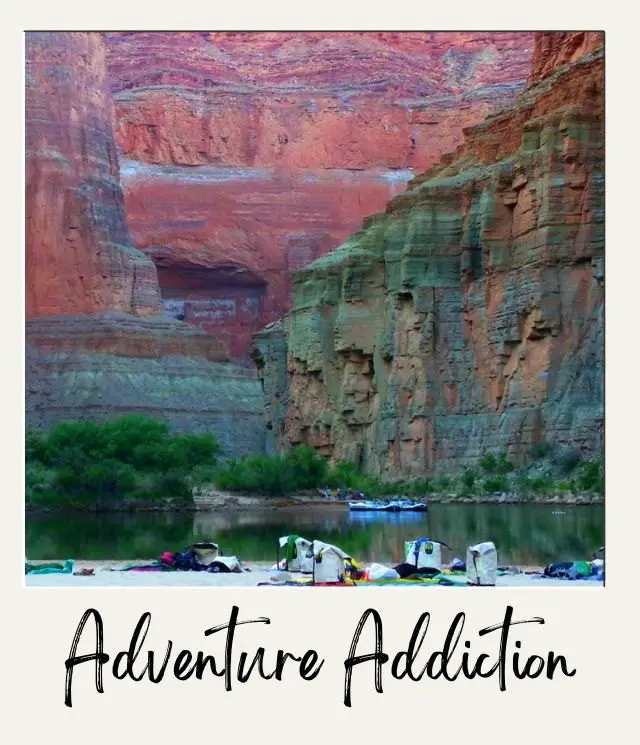
10. Adventure Addiction
Activities like kayaking, rock climbing, and white-water rafting could turn you into an adrenaline junkie. Your sofa might miss you.
Beware the allure of US national parks if you value your sedentary lifestyle. With activities like kayaking in Acadia, rock climbing in Joshua Tree, and white-water rafting in the Grand Canyon, you might find yourself developing a dangerous addiction to adventure.
Imagine the thrill of navigating rapids, the exhilaration of scaling a sheer cliff face, or the serenity of paddling through pristine waters. These heart-pounding experiences could awaken a craving for adrenaline you never knew you had. Suddenly, the comfort of your couch and the glow of your TV seem less appealing compared to the call of the wild.
Your weekends might transform from Netflix marathons to planning your next outdoor escapade. Friends will start seeing you as the daredevil of the group, always ready with a new adventure story. Your couch, once your loyal companion, will gather dust as you seek out the next rush of excitement.
So, if you want to protect your relationship with your beloved couch and avoid the slippery slope into adventure addiction, it’s best to steer clear of the thrilling activities offered by America’s national parks. After all, your sofa might start feeling neglected.
Subscribe to daily national parks planning tips, travel inspiration and trip ideas and I’ll send you a free PDF of this Guide to:
“10 Reasons Why You Should NEVER Visit US National Park”
I hope you have enjoyed this tongue-in-cheek look at why the National Parks can be awful places to go to! Consider yourselves warned. 😜
And if you really want to steer clear of the national parks, read some actual one-star reviews of national parks on Yelp and TripAdvisor. They’ll put you off even more!
What do you think of these reasons not to visit the national parks? Join my private Facebook group National Parks Collectors and comment and let me know (you can also pick up extra planning tips, share your photos and stories with other national park lovers and more).
If you liked this tongue-in-cheek post about 10 reasons why you should NEVER visit US national parks, please share the love and Pin It to your US National Park board!
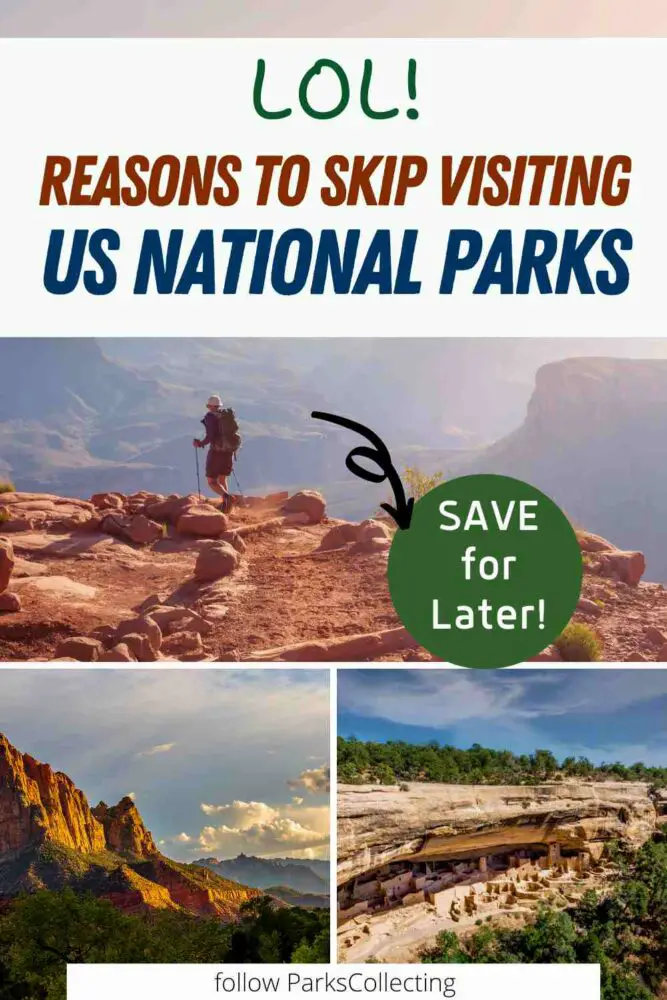
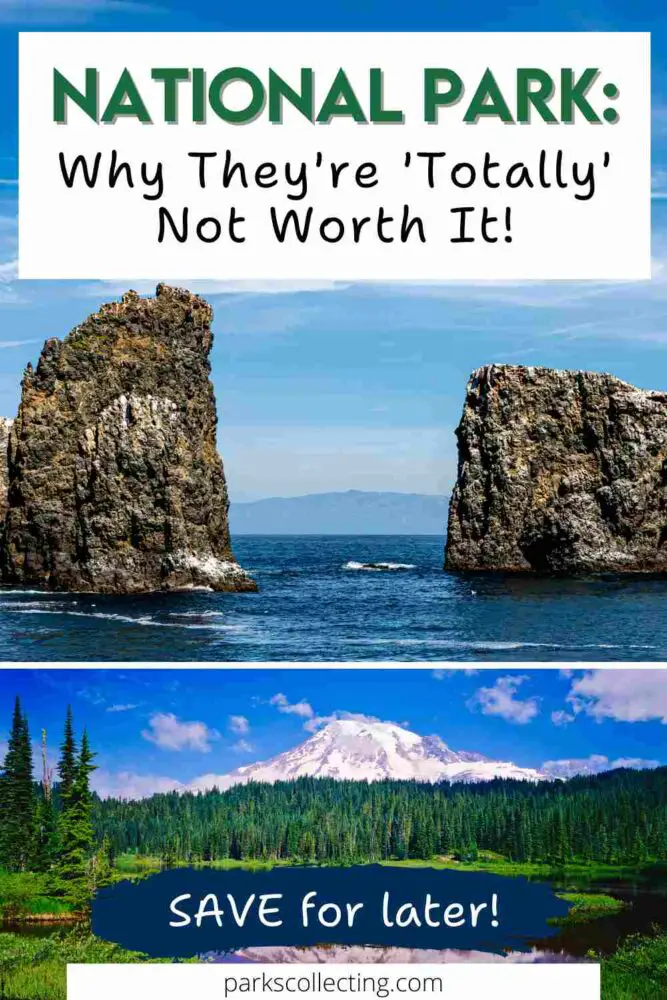
Are you just starting to think about taking a national parks trip? Get Inspiration
Are you starting to plan a trip to a national park? Read my National Parks Guides
Do you want an itinerary to help plan your trip? Check out my Detailed Itineraries
Are you ready to book your trip? Use these Planning and Booking Resources
About the Author
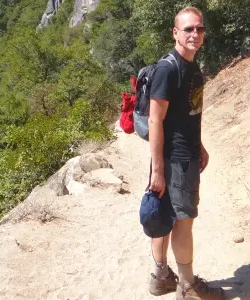
James Ian is a national park, camping and hiking expert.
He has dedicated his life to travel, visiting more than 80 countries, all 7 continents and most of the national parks in the United States. With over 35 years experience in the travel industry, James has worked on cruise ships, at resorts and hotels, and as a travel planner who’s helped hundreds of people plan successful trips to US national parks.
Based on his experience visiting our national parks multiple times, in-depth research and expertise as a travel planner, James has published detailed itineraries for many of the major national parks in the US. These itineraries, as well as in-depth park guides, and other resources will help you have your own incredible trip to US national parks without stress and hassle.
As a national park expert, James has contributed to many publications, including USA Today, Newsweek, Time Business News, Savoteur, Best Trip, and Wired.
